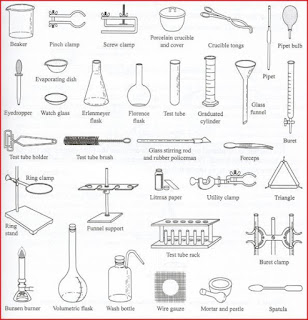INTRODUCTION OF CAD SOFTWARE (SOLIDWORK & AUTOCAD)
INTRODUCTION OF SOLIDWORK

ADVANTAGES OF SOLIDWORK
1. Increase Productivity
SOLIDWORKS 3D modeling allows to simulate the design aspect in 3D right away and make any necessary adjustments right away. This increases the designer’s efficiency because he won’t have to rethink the concept later. SOLIDWORKS drawings also help to detect inconsistencies and allows the designer to make changes to models and sketches before they are finished. This cuts down on manufacturing time and enhances the process, making it more cost-effective and allowing companies to adhere to tight deadlines.
2. Design Better
Traditional drafting methods entail manually recording various aspects of a mechanical component, which is a time-consuming process that requires high levels of accuracy. SOLIDWORKS 3D CAD models come preloaded with versatile documentation options, such as documenting product geometries and measurements, material specifications, bill of materials, and so on, it simplifies the entire process of documenting component designs.
Designers may use existing design templates which allows for the automated dimensioning of 3D CAD models as per industry standards and ensures design accuracy while also saving time. It also helps you calculate forces resulting from motion, flow, component stress, and deflection, as well as vibration and temperature effects.
You can save time by creating several configurations using parameters and guidelines to quickly create existing designs with minor adjustments. In this way, you can imagine and design several iterations of a concept in the time it would take to create only one. One of the most significant benefits of incorporating a fully integrated 3D design development environment like SOLIDWORKS is that it reduces the risk of any human error.
3. Cost-Efficient
Several standard built components are included in 3D CAD, saving the designer the time and effort of designing them from scratch. This helps you save both time and money. You can save money with SOLIDWORKS by shortening design cycles and speeding up time to market, as well as eliminating duplicative, repetitive activities and costs.
INTRODUCTION OF AUTOCAD
AutoCAD is a CAD and drafting software application. It was developed and marketed by Autodesk. It was released and demonstrated in December 1982 as a desktop app running on microcomputers with internal graphic controllers. It has been used in many type of industry such as architects, project managers, engineers, graphic designers, city planners and other professionals.
FEATURES IN AUTOCAD:
1.
It is Compatibility with other software
-ESRI ArcMap 10 permits export as
AutoCAD drawing files. Civil 3D permits export as AutoCAD objects and as LandXML.
Third-party file converters exist for specific formats such as Bentley MX GENIO
Extension, PISTE Extension (France), ISYBAU (Germany), OKSTRA and Microdrainage
(UK).
-
It also can convert to pdf. However, the accuracy of the results may be
unpredictable or distorted.
2.
It has include many language
-Languages available in Autocad and
Autocad LT are: English, German, French, Italian, Spanish, Japanese, Korean,
Chinese Simplified, Chinese Traditional, Brazilian Portuguese, Russian, Czech,
Polish and Hungarian (also through additional language packs).
-The extent of localization varies
from full translation of the product to documentation only. The AutoCAD command
set is localized as a part of the software localization.
3.
Extensions
AutoCAD supports a number of APIs
for customization and automation. These include AutoLISP, Visual LISP, VBA,
.NET and ObjectARX. ObjectARX is a C++ class library, which was also the base
for:
-products extending AutoCAD
functionality to specific fields.
-creating products such as AutoCAD
Architecture, AutoCAD Electrical, AutoCAD Civil 3D.
-third-party AutoCAD-based
application.
ADVANTAGES OF AUTOCAD
1. Accurate and Reduces Errors
The principle on which AutoCAD
works is a dynamic engineering model. This model blends design and production
drafting together, which allows the changes to be made to any part of the
design at any point in time in the entire project. This results in error reduction
and fewer chances of mistakes. Furthermore, the designs which are made
digitally always have room for enhancements and improvement.
2. Save Time & Money
With a specific and user-friendly
interface and workflow, AutoCAD works speedily, which saves the time of the
designer. AutoCAD supports documentation tools that increase productivity and
help the designers and architects streamline the designs and documentation
workflows. It also provides solutions to implement modifications in the
projects, thus reducing the time taken. It is an efficient program that
undertakes the designer’s work process and helps in saving time and money and
reducing errors.
3. Easier Import/ Export of files
AutoCAD Inventor supports file
import and export features. AutoCAD allows the users to import models from
Inventor, and it also manages to do it quite easily and speedily. AutoCAD also
supports various other tools and features that boost the productivity of the
program. Some of them being; PDF support, compatible with Autodesk 360, social
media sharing, AutoCAD WS, DWG Convert, and many more. AutoCAD also supports
PRESSPULL operations, allowing the users to create surfaces, solids, and offset
curves with much ease. These meshes are dynamic in nature and can easily be
manipulated. The designers can easily develop physical 3D Frameworks of their designs
with the 3D
printing capabilities of AutoCAD.









Comments
Post a Comment